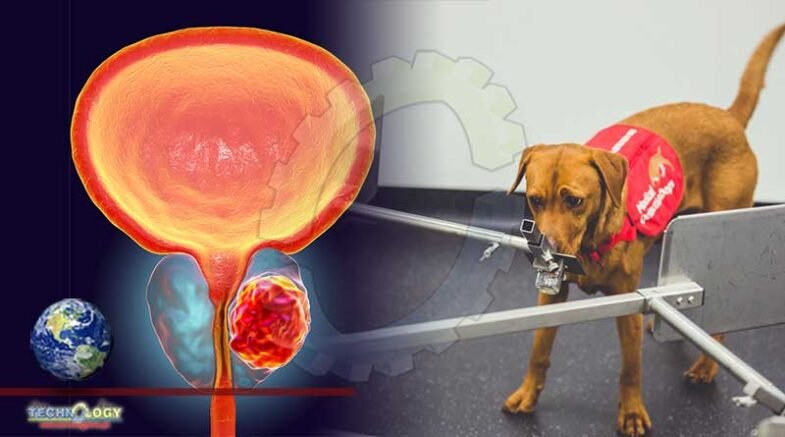A new study of an artificial neural network has demonstrated the ability of dogs to detect aggressive prostate cancer from urine samples.

A new study has demonstrated the ability of dogs to detect aggressive prostate cancer from urine samples.
The study, published Wednesday in the open-access journal PLOS ONE, has suggested that an artificial neural network could learn from this olfactory ability to replicate it in novel detection tools, according to Science Daily.
Dr. Claire Guest, Co-Founder, CEO and Chief Scientific Officer of Medical Detection Dogs in Milton Keynes, U.K., and her colleagues conducted the study.
Prostate-Specific Antigen (PSA) is a widely-used screening test for prostate cancer, but it can miss an aggressive form of prostate cancer in men who have it.
Experts have been exploring alternative tests. The new study has shown that dogs can be trained to detect aggressive prostate cancer from urine samples with a high degree of accuracy. However, it would be impractical to get dogs for large-scale screening.
Dr. Guest and her team set out to combine the “strengths of canine olfaction with those of other promising detection methods in order to surface new insights that could aid the development of better prostate cancer tests,” according to Science Daily.
The team trained two dogs to detect aggressive prostate cancer from urine samples. The dogs showed more than 70% sensitivity – the ability to identify true positive cases – and nearly 76% specificity – the ability to correctly identify negative cases – in detecting advanced prostate cancer.
The researchers also applied two lab detection methods to the urine samples, which included gas chromatography-mass spectroscopy analysis and analysis of microbial species – the methods that surfaced key differences between cancer-positive and cancer-negative samples.
They then used the dogs’ data to train an artificial neural network to identify specific portions of the spectroscopy data that contributed significantly to the dogs’ diagnoses,” according to Science Daily.
The team cautioned that the study was conducted on two dogs so there is a need for larger studies, which could further integrate these methodologies to improve detection of aversive prostate cancer and help aid the development of new diagnostic tools. “We’ve shown it is possible to replicate the dog’s performance as sensors and brains, it is now time to put this technology in every smartphone,” the author wrote.
Originally published at My Healthy Click
